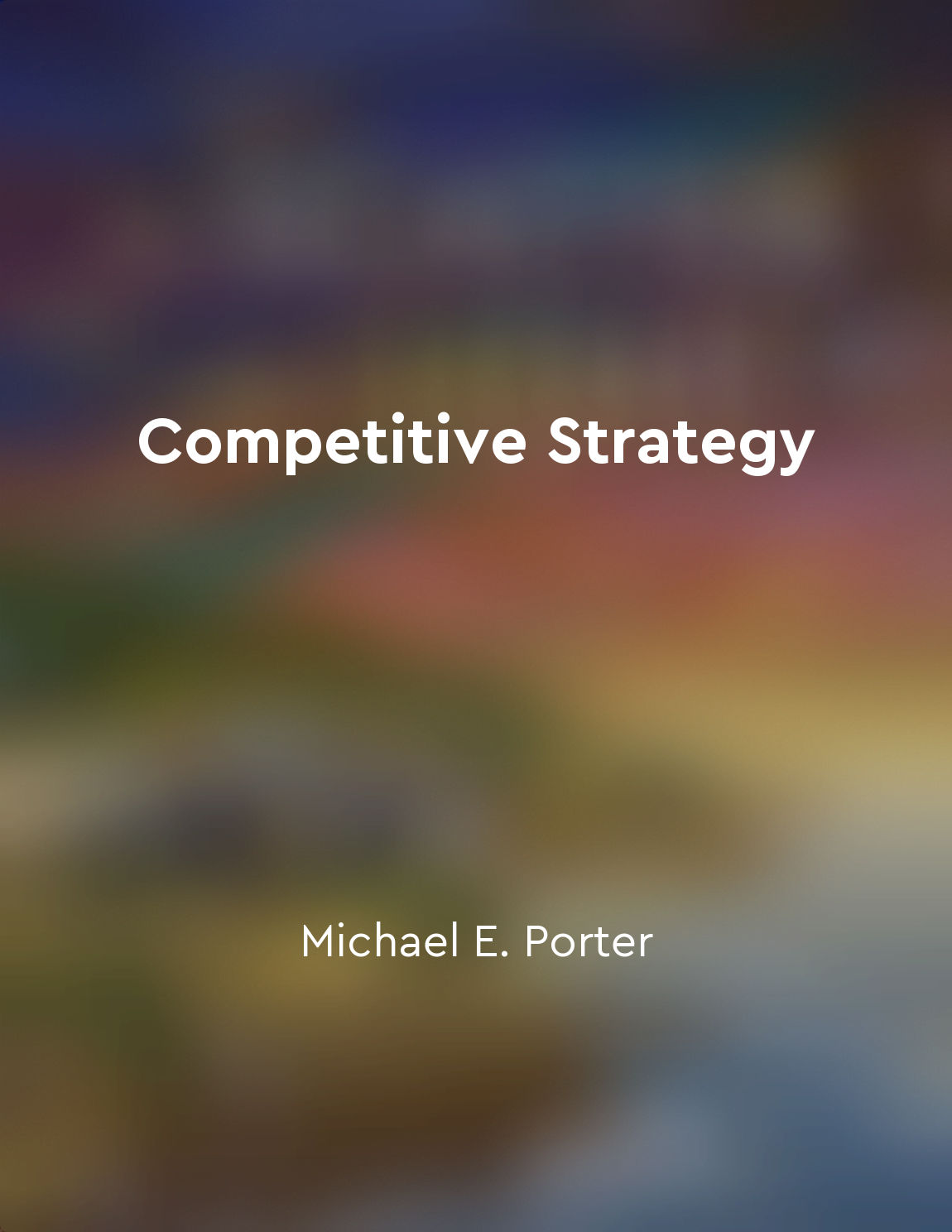Companies must make tradeoffs in choosing a competitive position from "summary" of Competitive Strategy by Michael E. Porter
The essence of strategy is choosing what not to do. Companies must make tradeoffs in choosing a competitive position. A tradeoff means that more of one thing necessitates less of another. Companies that try to excel at everything end up excelling at nothing. For a company to be successful, it must make clear choices about where it will compete and how it will win. These choices involve selecting a set of activities that are different from those of rivals. By making tradeoffs, a company can focus its resources on activities where it can create a unique and sustainable competitive advantage. Tradeoffs also help define a company's identity and positioning in the marketplace. This clarity enables the company to align its organization and resources around a clear strategic direction. Without tradeoffs, a company risks becoming stuck in the middle - not being able to deliver superior value to customers or being cost-effective. Tradeoffs are not only about what activities to perform but also about how those activities are performed. Companies must carefully choose where to invest their resources and capabilities to achieve a competitive advantage. This requires making tough decisions about which activities to prioritize and which to deprioritize. Tradeoffs also extend to the customer segments a company chooses to serve. Different customer segments have different needs and preferences, and it is impossible to satisfy all of them simultaneously. By focusing on specific customer segments, a company can tailor its offerings to better meet their needs and differentiate itself from competitors.- Tradeoffs are essential for creating a sustainable competitive advantage. They require discipline and focus but are necessary for a company to stand out in the marketplace and deliver superior value to customers. Each tradeoff a company makes shapes its competitive position and determines its long-term success.


